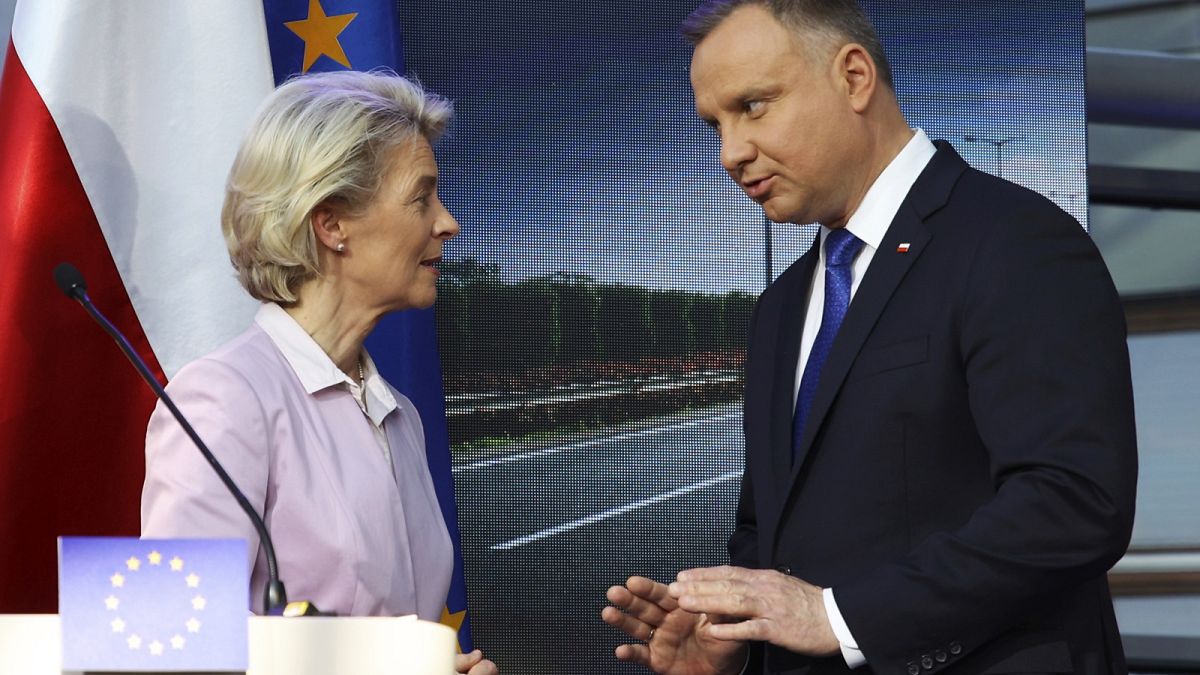The European Commission on Tuesday greenlighted Poland's revised COVID-19 recovery plan, now worth almost €60 billion.
The new Polish recovery and resilience plan (RRF) combines €34.5 billion in low-interest loans and €25.3 billion in grants, which are meant to be disbursed in several instalments throughout the next years. Almost half of the projects that Poland has committed to undertake will be dedicated to the green transition.
The revision takes into account RePower EU, the bloc's plan to slash imports of fossil fuels and accelerate the green transition, put forward after Russia's invasion of Ukraine. Poland's original RRF plan was worth over €35 billion.
Despite the upward revision, the money remains strictly linked to the conditions imposed last year, also known as "super milestones."
The conditions are meant to undo the damage caused by the judicial overhaul introduced in 2019 by the hard-right Law and Justice (PiS) party, which empowered the disciplinary chamber of the Supreme Court to punish magistrates according to the content of their verdicts, including by waving their immunity to allow criminal proceedings.
However, the Commission's new positive assessment includes the option to release €5.1 billion in pre-financing before the end of the year, as long as the 27 member states give their approval. This tranche is notably not linked to the so-called milestones, so it could be unblock in a matter of weeks.
If released, the €5.1 billion would represent the first payment of recovery funds for Poland, which has been so far unable to tap into the bloc's €750-billion common pool over persistent concerns about judicial independence and the separation of powers.
The back and forth between Brussels and Warsaw played out for years in public view and ended up reaching the European Court of Justice (ECJ). In a ruling delivered in June, the court said Poland's controversial reform undermined the right to have access to an independent and impartial judiciary, effectively striking it down.
It is ultimately up to the Polish government to introduce the necessary legal changes to amend the disciplinary regime and make it compatible with EU law. In fact, two of the three "super milestones" to unlock the remainder of the money directly address the dispute. Poland has to:
- Reform the disciplinary regime for judges and replace it with a new body.
- Review the cases of the judges affected by the disciplinary chamber.
- Enable the use of Arachne, an IT tool that supports anti-fraud activities.
The Commission will only assess the progress made by Warsaw when the government submits an official payment request. (The €5 billion in pre-financing are excluded from this procedure.)
No disbursement "is possible until Poland has satisfactorily fulfilled these three 'super milestones'," the executive said in a press release.
The timing of the Commission's decision has not gone unnoticed, as it coincides with the potential return of Donald Tusk as Polish prime minister and the departure of Law and Justice after eight years in power.
In the general elections held last month, Tusk's Civic Platform (KO), together with two other opposition parties, won more than 54% of the votes and secured a majority of 248 seats in the 460-seat Sejm, the lower house of the Parliament.
Tusk has made unblocking the recovery funds one of his top priorities. But his appointment depends on President Andrzej Duda, who has yet to task him with the formation of a coalition government.
This piece has been updated with more information about the Commission's decision.
